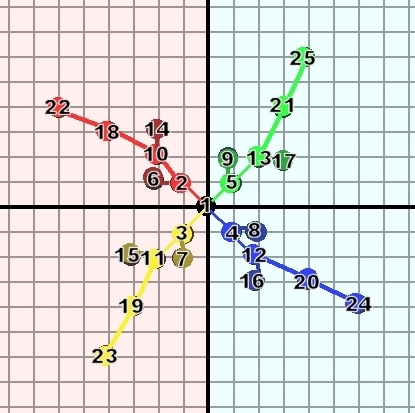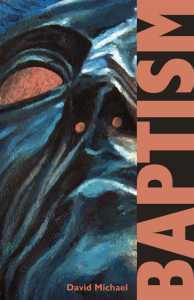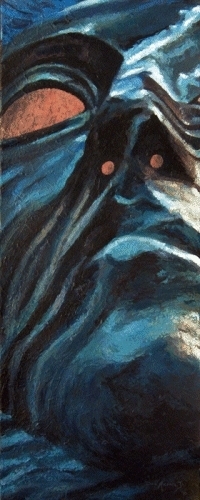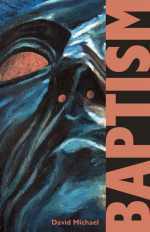David R. Michael's Blog, page 42
November 29, 2010
Writing Progress Report
Writing progress report for the week starting Monday, November 22, 2010.
Writing Project
Words
Monday
Gunwitch outline review and edit.
Gunwitch
1027
Tuesday
Gunwitch outline review and edit.
Wednesday
Gunwitch
1085
Thursday
Gunwitch
544
Friday
Gunwitch
380
Saturday
Gunwitch
Edited "Insanity".
1042
Sunday
Total
4078
Marketing/Submission
Monday
Posted Part 3 of "Baptism" to Guns & Magic. Updated promo threads at KB and MR.
Formatted Horse Girl ebook for Smashwords.
Tuesday
Wednesday
Created a promo thread for TSF on Nook Boards.
Formatted Horse Girl ebook for Amazon DTP.
Formatted Horse Girl ebook for PubIt.
Thursday
Uploaded Horse Girl to Amazon DTP.
Uploaded Horse Girl to PubIt.
Uploaded Horse Girl to Smashwords.
Friday
Submitted TSF for review to darkeva.
Updated TSF promo threads on KB and MR.
Saturday
Sunday
Tagged all my books on Amazon.
Reading List
Monster Hunter International by Larry Correia.
Published on November 29, 2010 08:24
November 28, 2010
Amazon Book Tagging
Today I learned about a feature on Amazon called "tagging". Go to any book page on Amazon (click on one of mine if you need a handy example), and scroll down to "Tags Customers Associate with This Product". The particular tags (like "horror", "revenge", etc) are used by Amazon to find similar books, recommend books, and generally organize all the millions of books available. To put it another way: tags help your book get found on Amazon.
Authors can select an initial set of tags. Readers can use (check) those tags or add their own. The tags with the most "votes" move up in the list.
I had not paid much attention to this feature until today when I finally read the "Author Tag Exchange" thread on KindleBoards.
I spent a few hours today "exchanging" tags with other authors, and learning from the tags those authors had selected for their own books.
Before today, I had not set any tags on my own books. I assure you that mistake has been rectified.

Here are a couple thoughts that came to me as I tagged about 200 or so books (yes, it was a slow Sunday afternoon):
I am an indie. My books aren't. 99.9% of readers could not care less that I'm an "indie author". They're just looking for a good book.
I am not a "Kindle author". I'm an author . Again, why would I tag my book with "kindle author"? Readers don't care. The Kindle is just one of the platforms I'm supporting.
So, yeah, that's what I did today, marketing-wise.
-David
Published on November 28, 2010 19:45
November 26, 2010
How I Built The Summoning Fire
This is the structure I used to outline and write the first draft of The Summoning Fire :

In short, the story was built and written as a spiral, expanding outwards.
Why a spiral?
Why not?

The idea for a "spiral structured story" occurred to me in August 2006, appealed to me immediately, and I refused to let it go. My original idea was to spiral *in*, instead of *out*, but the storyline I came up with seemed to work better exploding out from the center.
It took me a couple days to decide on the shape of the spiral, including the positioning of the little "spurs" that come off the main arms (which represent the stories of secondary characters related or tangential to the particular main storyline). And for some reason, I insisted on having the shape visually balanced.
The vertical axis is time, with the past at the top and the future at the bottom. The horizontal axis is less well defined. I started out with the idea that the horizontal axis indicated "relevance" to the central event. But that's not quite it. And, frankly, the time aspect of the vertical axis got abused quite a bit.
Ultimately, though, it doesn't matter what either axis represents. I wasn't trying to create a 100% accurate representation of the story in 2D space. And I'm not even sure what that means.

So, once you get down to the essentials, this picture is just a graphic aid, a pretty diagram for a story with 4 main storylines that either converge toward or diverge from a particular event.
I liked the experimental, non-linear nature of the spiral.
I wrote the first draft of The Summoning Fire exactly as shown, with the exception of cutting the planned chapters #14 and #22. As I reached those chapters, they seemed redundant. I had already covered what those chapters had been outlined for.
The final draft, though, the story as it is now in paperback and ebook, was shifted a bit to make it less confusing (your mileage may vary
 ). Also, and perhaps more importantly/usefully, I added the simple phrases "Before the Fire" and "After the Fire" to each chapter heading. The "Before the Fire" chapters move backwards from the first chapter, while the "After the Fire" chapters move forward from the fire.
). Also, and perhaps more importantly/usefully, I added the simple phrases "Before the Fire" and "After the Fire" to each chapter heading. The "Before the Fire" chapters move backwards from the first chapter, while the "After the Fire" chapters move forward from the fire.-David
Published on November 26, 2010 10:33
November 25, 2010
A Thanksgiving Scene
This is an excerpt from my first completed novel, Threads:
* * *
(Editor's Note: "Jack" is a 15 year old girl, Jacqueline Weber.)
Jack and Dad spent Thanksgiving day as they had for the previous nine years. They worked all morning fixing enough food to feed a small army. Dad prepared the turkey, herb stuffing, and green bean casserole, while Jack created the cranberry sauce, baked the dinner rolls, and candied the yams. In the living room, the TV blasted out commentaries on the many floats and marching bands parading across the country.
When the feast was ready and spread on their small dining table, Dad took Jack's hand and said, "Thanks, Jack."
Jack smiled and responded, "Thanks, Dad."
And then they ate.
There had been few "family traditions", as Dad called them, before Mom died. Not that Mom hadn't tried to create some. She had frequently set up mini-celebrations on random days picked for obscure reasons, as well as celebrated most of the more traditional holidays. Little Jackie and Dad, however, had been more inclined to lay about the house on these days, wearing pajamas until almost evening, watching TV and playing games and otherwise just being happy slobs. When Mom had found out she was pregnant with the baby, however, she had declared that next year was going to be different.
The next year had been very different.
Beginning with that first painful New Years, Dad and Jack had planned out which holidays, and special Mom Days, they would celebrate, and structured their celebration in ways that Mom would have approved of. Valentines Day they skipped, because Mom always hated its commercialism, choosing instead to celebrate "Sweethearts Day" in mid-March. On Easter they decorated eggs, and participated in whatever public egg hunts they could find. Flag Day and Independence Day were the summer holidays, with Halloween and Thanksgiving being the fall holidays. Christmas and New Years completed the set. They spent the holidays together, for themselves and for Mom.
After eating as much as they could, an important part of the Thanksgiving tradition, Jack and Dad put away the leftovers, packaging them to be eaten over the next week, also a part of the tradition. Then they rested on the sofa and flipped through the various football games and network TV movies, watching nothing for more than a few minutes before moving on. Dad sat with his feet on the ottoman, while Jack sat sideways with her feet in his lap.
Jack's eyes drifted from the TV screen to Dad's profile. His eyes were drooping, though only slightly more than Jack's.
Mom always seemed present on these days–and after the full moon last week, Jack wondered if maybe she really was–but she and Dad never talked about her. If they didn't talk about her, then Mom might be in the kitchen, putting up the last of the leftovers, or in the bedroom at her craft table, pinning a quilt. She might emerge from either place at any moment to wake up Dad and Jack, remind them that a movie was coming on that they wanted to watch. Talking about her, though, would break the spell, force them to remember.
Dad had said nothing about what he had seen at the full moon dance. Jack longed to know what Mom had said to him, wanted to know if he had seen her or only felt her there. Dad had known Mom from long before Jack arrived. They had been husband and wife, boyfriend and girlfriend, classmates, years before they became Dad and Mom. Jack knew this, but it still seemed an odd concept. She liked to think that she knew everything about Dad. But there were still secrets, secrets only Mom would ever know. That night under the full moon had been a private moment between her parents, such as few children ever got to see. She didn't really need to know what they said to each other, she decided. Seeing them together again, even if only so briefly, was enough, and was more than she had had a right to hope for.
"Yeah," Dad said suddenly. "Me too."
Jack found she had to blink away tears to see Dad. She hadn't realized she was crying. Dad looked at her, his face full of compassion.
She wiped her eyes, mad at herself for spoiling the day. "I'm sorry," she said.
"Don't be," Dad told her.
Jack returned his smile as she felt a small stirring in her mind. Sylvia must have noticed the momentary distress and turned her attention to Jack. Jack sent a heartfelt, Thanks, Sylvia, and received a warm rush of gratitude in return.
* * *
Happy Thanksgiving!
-David
Published on November 25, 2010 17:15
November 23, 2010
Enjoy Your Freedom (To Write Whatever You Want) While Ye May
New authors in general, but new indie authors in particular, should take full advantage of the freedom that obscurity makes possible. When you first start out, and no one is paying you to write anything in particular, you can (and should) write whatever the hell strikes your fancy. Be it charnal horror or low fantasy or space opera or romantic action plumbing, if you can think of it, you should write it. And you should write it quick, before you start making money at one or the other genre.
Because once you start earning money with a form of writing or a particular genre or sub-genre, you've entered the Positive Feedback Loop.
No money coming in? Total creative freedom.
Money starts flowing? Totally different situation.
Once money gets involved, it colors everything. It especially colors your choice of next project.
Money is to writers (and artists of all types) what food pellets are to rats in a researcher's cage. The rats mill about until they figure out that hitting the lever in the back corner of the cage gives them a food pellet. Then there's a lot less milling about, and lots and lots of hitting the lever and eating the food.
You write something that makes money, and you've found yourself a lever you can hit, a button you can push. A button that gives you money. A button you're going to want to push as many times and as often as you can.
This isn't bad, necessarily. The button is neutral. You choosing to push the button isn't an evil act. Most of the time, it's probably the best thing to do. Especially when "best" is defined as "what will make me the most money for the time/work invested?"
What happens is that you will find yourself focusing on the button you know works. And since you know it works, it becomes very hard to try out other buttons. At least, not until you wear this one out. Even then, you'll keep coming back to that button.
That's how positive feedback works. You do something, you get positive feedback, so, hell yeah, you do it again. Presto! Learned behavior.
So, yeah, embrace your obscurity. You're probably stuck with it for a while, anyway. Might as well make the most of it. Take the opportunity and write about anything and everything. Explore and expand your creative reach. Try new viewpoints and storytelling techniques. Try everything.
It's much easier to be risky when there's nothing on the line but the time spent. Once money comes into the equation, the solutions all start looking the same.
-David
Published on November 23, 2010 22:06
November 22, 2010
My Nano History To Date
2006 – The Summoning Fire – Planned and plotted the story in August, long before I needed it, then went over it time and time again before the first of November. I wrote 61500 words in 23 chapters. Each chapter was written in a single day (though some of them took more than 4 hours to finish). While writing such a dark book took a psychological toll, especially towards the middle of the month, I rocked this project. Of course, I had been writing nearly every day since February and The Summoning Fire's 61.5K words were less than 1/3 of my total word count for the year. So I was "in shape", writing-wise. As if I had been prepping for a marathon all year.
2007 – Running Waters (now renamed) – Planned and plotted the story in the last weeks of October. I wrote 51000 words across 8 chapters (out of 25 chapters planned). I had written probably 50K words in 2007 before 1 November, most of it the Horse Girl project. I won Nano. But I didn't finish the book (I'm working on it again now, with an updated outline and a new working title).
2009 – Finished the Horse Girl Project – I had been not writing the last 2 chapters of the Horse Girl since the middle of 2007. Self doubt can really slow you down. I finished Horse Girl in the first couple days of November. Which was less time than I expected it to take. So then I decided to finish out the month of November writing stories. Trying to duplicate what I done in 2006 by writing one story every day. That didn't last. Just because I could do it in 2006 didn't mean I could do it again, without any practice. I wrote 9 stories. Before November 2009, I don't think I had written more than 10K words that year. Still, since I had (finally) finished the first draft of Horse Girl, I counted it a Good Month, even if not a Nano "win".
2010 – The Closing Crew (shelved) – Barely plotted and loosely planned in the last week of October–and put on the shelf after 26000 words. Another not-win.
I would say my Nanowrimo Performance has been largely downhill since doing so well in 2006, my first time ever. Maybe I should just let Nano go. Support it, sure, but don't try to fit it into my schedule any more.

I would also say that "loosely prepared" and "winging it" are not how I should approach writing novels. Short stories, sure. I can wing short stories and write lengths from 5K-20K words with only a character, a situation, and a vague idea of how I want to structure it. Novels? Not so much. Novels need planning. And I should know the story enough to have an outline of it before I start writing.
Will I do Nano again? I have no idea. Ask me next October.

-David
Published on November 22, 2010 15:24
Still Writing, but No More Nano
It's official: I'm no longer participating in Nanowrimo 2010.
Today I wrote the first 1000 words in another (newly resumed) project. Depending on how many words I rack up each week, this project will likely be my main (only) focus for the next 4-6 weeks. I might do more writing later today. Or not. I consider the work I did on the book outline before I wrote to be "writing", even though it generates no words I can count.
I thought about adding my word production on this project (which will be called "Gunwitch" in my progress reports) to my Nano total, but decided that wasn't really in the spirit of Nano. Also, I'm more interested in my longterm continued writing than in Nano. There's more to the year than November (thank your favorite deity).
So…I wrote 26K words for Nano 2010. Not bad.
By the end of November, I should be up to 40K (or more) total words written in November. Which is, again, not bad.
I was tempted to add up my word count for 2010, but I'll wait and do that after the New Year.
On with the writing!
-David
Published on November 22, 2010 13:31
Baptism (Part 3 of 3)
by David Michael
Read Part 1 of "Baptism" here.
Read Part 2 of "Baptism" here.
 Autumn Solstice
Autumn SolsticeMyra walked on a black road, the sun nearly overhead, looking down at her. The winds had not yet found her here and so only her footsteps disturbed the dust. She stepped between stalled and abandoned Citroens and Tuk Tuks and BMW's. She stepped over the occasional broken bicycle. She saw the corpses and skeletons of men and dogs and the dried grasses and faded flowers and brown palm trees that showed her that she had been this way before.
The signs beside the road sported Asian characters she couldn't read. She wondered where she was, and why she had come back here. She wondered what had changed. In her. In the world around her.
She had opened her eyes to the sunrise over mountains she didn't know. She hadn't remembered closing her eyes. In the time since she had come up out of the waters of the Caribbean Sea she had never even blinked. She had not slept. Yet a part of her seemed to wake at the sight of the sun.
The sun had always been there, the great fire of the sky, watching her, perhaps judging her, perhaps weeping hot, dry tears, but never interfering.
Myra had stepped toward the sun, and her foot had come down on this dusty, black road.
Did the sun want her to see what she done? She needed no reminders. The continent-spanning furies of the spring had ebbed. The hot anger of the summer had banked. She did not remember everything she had done, but she had not forgotten that she was the doer, the cause. The world had been reshaped by her hands. She did not know what she had become, but she knew she had not changed.
She walked along the road, expecting with each step to find herself somewhere new. Except she did not.
She smelled the pungent, warm-garbage stench of a durian before she saw the little girl eating the fruit.
The girl was about ten. She had sun-darkened skin and brown eyes and black hair that hung straight down her back. She wore a sleeveless white blouse and white shorts, both of them as dusty-dirty as the girl. The girl sat in the small puddle of shade created by a dead palm tree, the large durian fruit in her lap, cutting at it with a chef's knife that looked like a sword in her small hands.
The girl saw Myra and her big eyes became even bigger.
Myra and the girl looked at each other as the sun looked down at them. Neither said a word.
Finally, the little girl spoke. "Are you well, mother?"
The sounds of the little girl's words, the shapes her lips made as she spoke, were completely foreign to Myra. But she understood. Just as she had understood all of the curses and pleadings and prayers of everyone who had spoken to her since the day she had come up out of the water. Understood, and ignored.
Mother. The word made Myra blink. She felt the pull of the water. In the flesh of the fruit, and in the flesh of the girl. She turned to face the girl, but didn't step closer. She wanted to ask why the little girl had called her mother. Myra had never been a mother. She had never been pregnant. And until now, since she had taken Antonio's hand in hers, she had never hesitated to take even the smallest child into herself, their little bodies drying to dust even before she could press them to her heart.
Myra had never been a mother, and yet some part of her was. Or had been, or had been about to be, and was only now remembering.
"Do you want some of my fruit?" the little girl asked.
The girl put the knife down on the ground beside her, then got her feet, struggling some to lift the fruit. She held the fruit under her left arm and scooped some of the soft flesh of the durian with her right hand. She bowed at the waist and held out her hand, offering the portion to Myra. She tilted her head so she could look at Myra, her long hair hanging on either side of her face. "It's good, mother," she said.
Myra dropped her arms to her sides, palms in. The moisture of the offered fruit, the juices gleaming on the girl's chin, she wanted them. Her fingers twitched.
The little girl put the bit of fruit to her mouth and took a nibble. "See? It's really good." Then held it out to Myra again.
Myra opened her mouth to say, Thank you, no, but she closed it before the wrong words could come out. Instead, as if she couldn't speak, Myra put one hand up, palm out, to refuse the gift, and put the other over her mouth. She shook her head. Then she gestured for the little girl to continue.
The little girl didn't move her hand with the offering. "I can't eat it all, mother."
Myra squatted where she stood. She didn't trust herself to step any closer to the little girl. She didn't know why she hadn't already taken the girl's hand and her life and walked away leaving behind two dry, peeling husks. She gestured again for the little girl to continue.
After a minute, the little girl shrugged and sat back down. She ate the portion she had been offering to Myra. When her mouth was no longer full, the little girl asked, "What is your name, mother?"
Myra only smiled and shook her head.
The little girl looked confused, then shrugged again. She did a little bow from her seated position. "My name is Suprija Sumalee," she said.
Myra nodded her head in acknowledgment. She watched as Sumalee continued to eat. She could not remember the last time she had eaten. Or the last time she had felt hungry.
After the little girl had scooped out and eaten three more handfuls, she picked up the fruit in both her hands and extended it to Myra again.
"I cannot eat any more right now, mother," Sumalee said. "Are you certain you do not wish to have some?"
Myra shook her head, surprised that she meant it. She stood up. She felt the sun upon her hair and her skin and looked up. Was this what he had wanted her to see? The sun, as always, only shone down.
She turned to continue her journey, to wherever it took her. She didn't know how she could leave the little girl. How she had not already taken Sumalee's life and beauty. Why she was taking such satisfaction in thwarting what had become the core of her existence. She expected she would come back soon and finish the job she had left undone. For now, though, for once, she wanted to walk away and not leave a corpse behind her.
Her step took her only a step away.
"Wait, mother," Sumalee said. "I will come with you."
Myra stopped and looked back over her shoulder. She watched Sumalee plunge the knife into the remainder of the fruit and pick it up. She carried the fruit in both hands as she walked to catch up with Myra.
When Sumalee was still several paces behind her, Myra took her next step, uncertain if she were running away. From a little girl.
In the sudden darkness, lit only by the stars above, Myra saw that Sumalee was indeed there. Part of her wondered at how that could have happened. Another part of her seemed to say –It is too late. But no longer with the same conviction.
The leftover durian Sumalee carried was eagerly eaten by the little boy, Imarogbe, that they found there, crying in the dark.
Winter Solstice
Myra turned around so she faced the children, her back to the empty air over the barren, empty bay.
Sumalee stood nearest, her face averted in a near-bow, but with her eyes focused on Myra, meeting her gaze. Behind Sumalee the other children huddled in groups of five and six. Sumalee was the oldest and the tallest. The youngest, Fatima, was a toddler who could barely walk. She peeked out from behind Imarogbe's legs.
She didn't remember when she had started sparing the children. With Sumalee's help, though, Myra had gathered these last survivors of humanity.
But this was the end. There was no more help she could offer them. She couldn't comfort them. She couldn't even touch them.
–It is–
"It is not too late," Myra said, refusing to complete the thought. "It. Is. Not." There was one more thing she–Myra–could do. She didn't know how she knew, but she knew. What her children needed was what she had taken from them. That other part of herself, the part that had come into her when she drowned, became silent.
"Holy Mother?"
She struggled with the words. She knew too much now. Words seemed so small and insignificant and devoid of meaning. "I am life," she said at last. "I am–I will watch over you." And she stepped backward, into the emptiness.
"Mother!"
Myra spread her arms as she fell. The winds became alert, wakened from their self-pity and wrapped themselves around her.
She looked up. She saw the children–her children–at the edge of the bridge looking down at her with fear and confusion. She saw the sun also looking down. She couldn't see if he smiled. She didn't know if he understood or approved. But she knew that he saw.
The winds bore her to the ground.
She did not die when she hit the rocky bottom of the bay. She was already dead. She couldn't die again.
Instead, she broke, like a vessel of clay, and the waters that she held within her rushed out and covered her.
More than water gushed forth. Because she was more than just water. She was life. Schools of fish fountained out of her with the waters of the oceans, and dolphins, and whales, and sharks.
She felt herself rising and she came out of the water, breaking through the surface like a geyser.
The winds blew through her now intangible form and carried off the clouds and the rains and the birds in swirling flocks of gray and white and blue and red and green.
She saw her children standing on the bridge. Some of them still looked down where she had fallen, watching with confusion and sadness as the waters bubbled up and washed away the dust. The youngest ones, though, laughed and danced in the mists and the new rains, faces raised, mouths open.
Around them the green grasses and fruit trees grew, exploding into life again, pushing aside the broken bits and pieces of what had been. The field mice and the spotted deer and the brown bears and more woke and looked around at the new world.
She had been angry, but now she smiled a rainbow across the chaos of the newborn sky.
It was also thus with her children. She could never stay angry at them.
THE END
Inspired by the painting, "Baptism", by Don Michael, Jr.

"Baptism"

Drunk on mojitos, high on love, and smelling of sex just consummated on the beach, Myra Acevedo went swimming for the last time. When she came out of the clear water of the Yucatan peninsula, she was no longer just Myra. She had become the end of the world.
"Baptism" Edition
Price
Kindle edition (Amazon)
$0.99
Ebook (Smashwords)
$0.99
Published on November 22, 2010 08:07
Writing Progress Report
Writing progress report for the week starting Monday, November 15, 2010.
Writing Project
Words
Monday
Nano
2014
Tuesday
Nano
2011
Wednesday
Nano
1971
Thursday
Edited Gunwitch chapter 1 & 2.
Friday
Edited Gunwitch chapter 3, 4, 5.
Saturday
Edited Gunwitch chapter 6, 7, 8.
Sunday
Edited Gunwitch chapter 9, 10 (incomplete chapter).
Total
Marketing/Submission
Monday
Posted "Baptism" Part 2 to the blog. Updated promo threads on KB and MR.
Fixed POD book interior for Horse Girl.
Created a Horse Girl core ebook Word doc.
Tuesday
Ordered proof copies of updated Horse Girl.
Wednesday
Thursday
Friday
Saturday
Sunday
Reading List
Salem's Lot by Stephen King.
Published on November 22, 2010 08:05
November 20, 2010
Featured at Smashwords Books Reviewed

Featured Author: David Michael
I talk about The Summoning Fire (of course) and writing and stuff like that.
Check me out!

-David
Published on November 20, 2010 08:59



